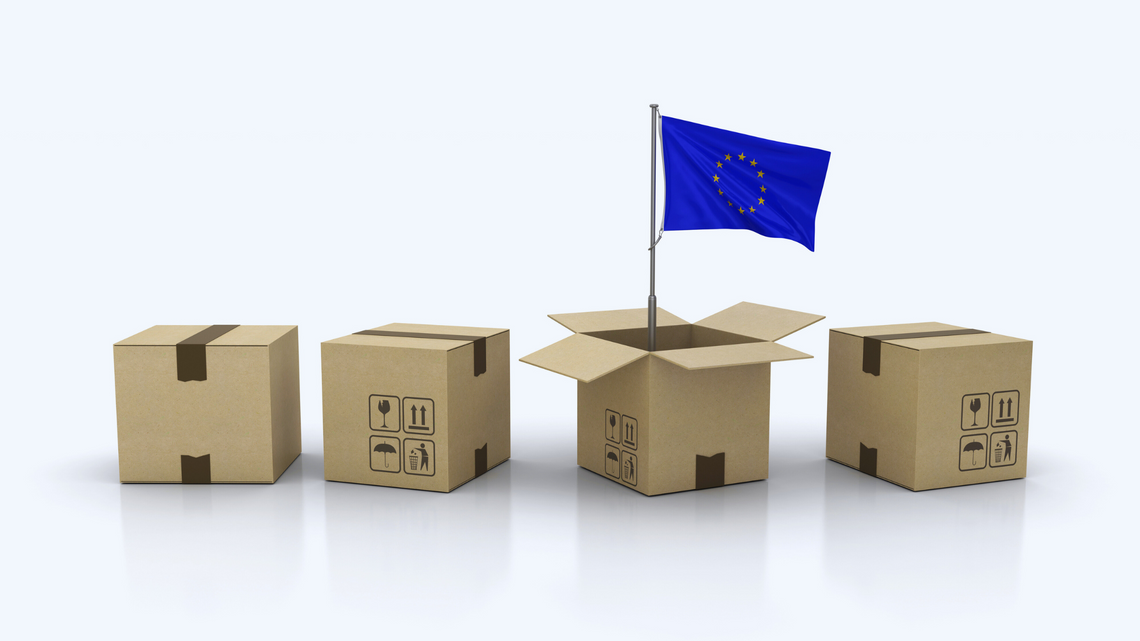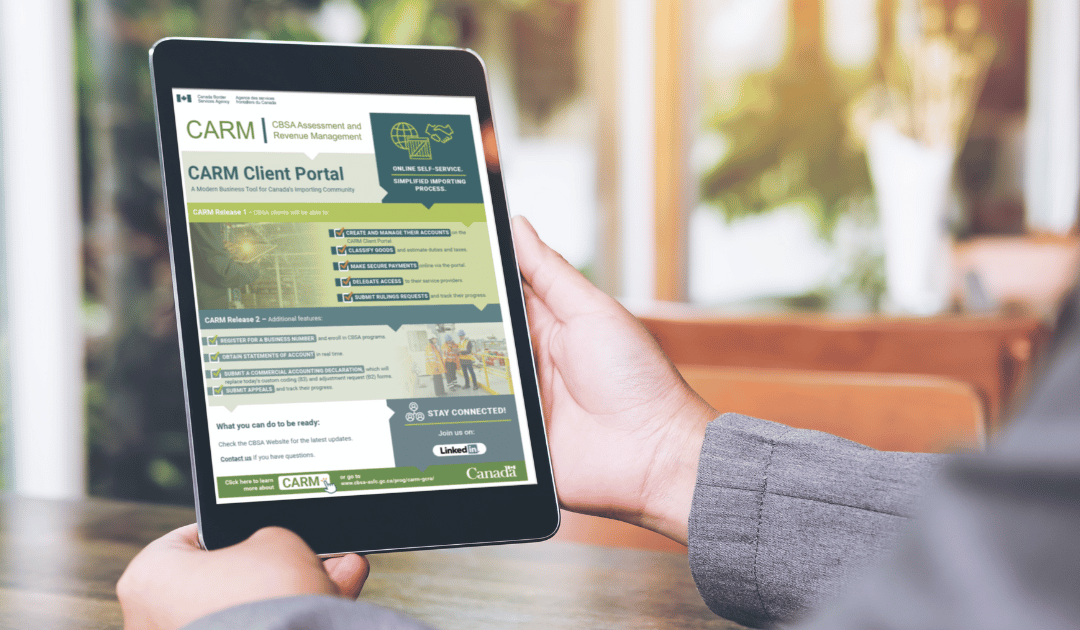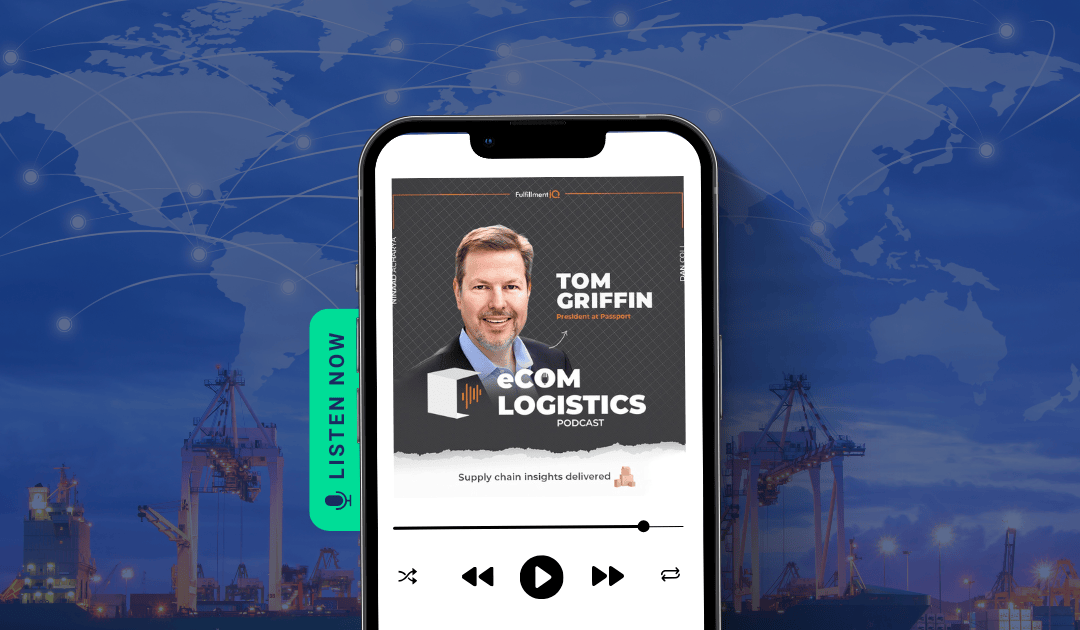Thinking of selling cross-border? Online retailers who want to deal with EU imports can grow their business significantly.
As a matter of fact, global e-commerce market stats reveal a potential of $6.3 trillion by the end of 2023. Meanwhile, in Europe, more than 216 million online consumers purchased from abroad.
Figures like that not only prove the strength of the EU market, but also the revenue opportunities for e-commerce brands that want to start exporting to Europe.
Just like any other EU imports, online sales have a long list of requirements for shippers. Handling European import tax and customs clearance documents, for example, needs some extra work and specialized knowledge.
Wondering where to start?
Here’s a short list on how to plan your cross-border online sales and exports to Europe.
Selling Online to Europe: A Beginner’s Checklist to EU Imports
Whether you want to sell food products or ship cosmetics to Europe, the first step is to assess whether this will be profitable for your organization.
EU Market Research
Like in every import/export trade venture, you should start your online sales in the EU by conducting preliminary market research.
Try addressing questions like these:
- Do your products have in-built demand?
- Are there cheaper domestic or foreign competitors?
- Do you have a marketing plan with a viable sales strategy?
- Have you identified online distribution channels?
These questions will help you assess your options and odds of success.
Ready? Now it’s time to put your plan into action.
Here are some things to consider:
E-Commerce Requirements to Export to the EU
Here are some essential requirements when exporting to Europe:
- Your products must meet relevant EU regulations regarding the protection of human and animal health, the environment and consumers rights.
- All your European customers must be offered the same sales conditions (e.g., special prices or promotions) despite the country they live in.
- Oftentimes, your EU buyers are obliged to have the same access to your goods as your local customers. Nevertheless, you are free to define your general terms and conditions of sale, including delivery limitations.
- Your potential EU customers must be able to access any part of your website they want without any restrictions. For example, suppose they type in an Italian URL of your online store, but they are connected from Spain. In that case, they shouldn’t be automatically redirected to your Spanish version. They must first give their consent.
- Your EU online sales and digital marketing strategies must be GDPR compliant. This strict data-protection protocol is mandatory for all e-commerce brands dealing with exports to the EU. GDPR compliance practices include minimal data collection, restricted access to databases, immediate deletion of data upon user request, and more.
VAT Regulations for B2C EU Imports
Every country in the EU applies its own import VAT (Value- Added Tax). This VAT rate varies between 17% and 27%, depending on the destination country.
Your EU customers pay VAT on every product they buy, but the remittance of this tax often falls to the seller. Note that every EU country may have different VAT remittance rules within the general EU VAT framework.
EU VAT Clearance – IOSS
For small orders up to €150, especially if they are shipped on DDP billing terms, it’s best for your business to enroll in the EU’s unified clearance program called IOSS (Import One-Stop-Shop). This means getting an IOSS number.
In this way, no matter where you sell in Europe, you can pay all your relevant import VAT together – under one monthly return.
What are the benefits of IOSS?
With an IOSS number, e-commerce businesses that sell in Europe are able to:
- Speed up customs clearance
- Claim VAT refunds on returned items
- Expedite the whole import process
- Minimize door-to-door delivery times
To use the IOSS system, you need to apply and pay for an IOSS number, deal with the safekeeping of records for 10 years, handle monthly remittances, and more.
But what about EU orders over €150?
Different procedures apply if your order value is more than €150. The carrier or customs broker should be able to pay VAT as part of the customs clearance procedure, but each carrier has their own process and fees.
Sounds complicated?
For an SME e-commerce business, all this may sound overwhelming. That’s where Passport Shipping comes in.
At Passport, we help e-commerce companies shipping to the EU deal with VAT compliance (collection and remittance) via our specialized SOR (Seller of Record) solution.
Using Passport’s SOR Program will allow you to:
- avoid complex registrations and filings
- use Passport’s IOSS number
- have your VAT returns taken care of (by us!)
- get expert guidance on EU import issues
As for your shop’s front end, we facilitate the checkout process with our integrated duty and tax calculator solution – easily embedded in Shopify, BigCommerce, or WooCommerce.
Aside from VAT, there are additional regulations for shipping to the EU.
Customs Regulations for Shipping in the EU (ICS2)
Before you start selling cross-border to the EU, you should familiarize yourself with international customs procedures and EU import regulations.
In the last year, merchants and carriers must comply with the ICS2 risk-assessment protocol.
This means that they must provide and submit detailed order/recipient information and commodity codes (HS numbers) for every order so that it can pass the pre-loading and pre-entry stages according to the ICS2 risk prevention procedures of the EU customs authorities.
Don’t Know Where to Start? Passport Can Help!
At Passport, we can manage your EU export shipping for you! Our customizable solutions assist online merchants handle order registrations, fees, taxes, and more.
Our Seller of Record (SOR) program is designed to support your e-commerce business access the EU market with ease. At Passport, we aim for seamless experiences for sellers and buyers alike.
If you are just starting to deal with cross-border e-commerce and EU imports, contact our sales team to find out how we can help!




